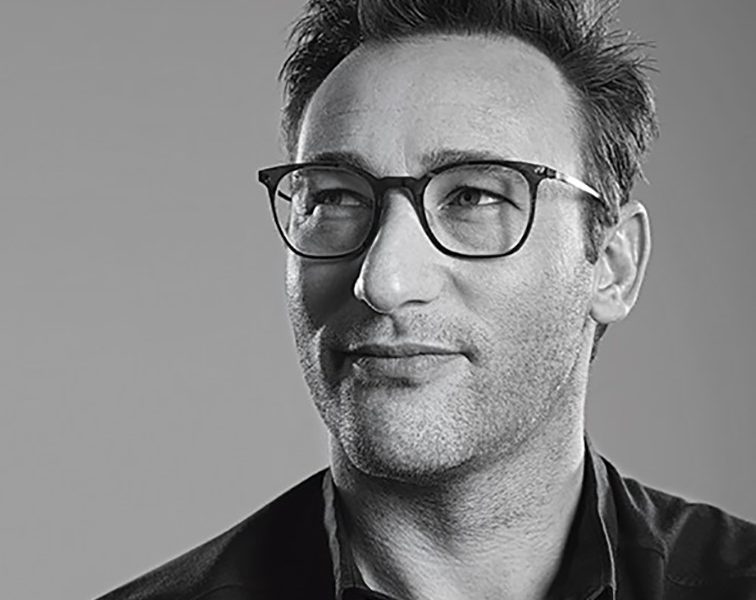SA
Crises demand optimistic and ethical leadership, says Sinek
Good leadership isn’t about being in charge, but about taking care of those in your charge, Simon Sinek told South Africans at a SA Jewish Report webinar last week.

JORDAN MOSHE
“There is a time for politics, but in a time of a global pandemic, unity is most important,” he said. “A leader is responsible for their entire population, and they need to think of a way to help us get through this together.”
Close to 30 000 people tuned in last Thursday to hear the perspective of the British-born author and motivational speaker on leadership under COVID-19. Sinek spoke from his home in Los Angeles in the United States, engaging with chairperson of the SA Jewish Report, Howard Sackstein, on the issues facing people in America and around the world.
If our situation demands anything, it’s the need to promote a new kind of leadership, Sinek said.
“No person on the planet has all the answers. Being open to counsel is important, regardless of whether you’re a world leader or a leader of a team. We all have blind spots, and if we take counsel from each other, we can cover them.
“That doesn’t mean we always have to agree with each other, but it does mean that we get to add other opinions to our point of view. That’s part of the unity that we need.”
Sinek said that like business leaders, world leaders must develop a forward-looking vision, and avoid fixating on the present if the pandemic is to be handled effectively.
“At times when the foundation is shaken, we need to be able to defer to a future vision,” he said. “A mistake many leaders make is insisting that we need positivity at a time of difficulty. We don’t actually need positivity, we need optimism.
“Positivity is saying that everything is fine and good, and we have the situation under control. Optimism isn’t denying the darkness of the tunnel we’re in, but focusing from afar on the bright light at the end of the tunnel. It doesn’t deny the darkness, and will admit mistakes.”
Sinek applied a similar principle to the calamities unfolding across the United States, saying that the debate about whether the protests over the killing of George Floyd are right or wrong can be had at a later point.
“Right now, we need to understand where the anger is coming from, and how we as a society bear responsibility for perpetuating narratives or not forcefully stopping some of the institutions that perpetuate racism. How many of us have actually taken hard steps to change the narrative?
“This has been like an argument between a couple. When there is tension, it affects how we treat each other and talk to each other. It makes things uncomfortable, and the tension usually bursts out in argument. If you can learn to hear each other and understand where the pain is coming from, the relationship can end up stronger because of it.”
Sinek said the anger displayed was a very human reaction, and though it would subside, we all need to find concrete ways to address the root problem wherever we may be in the world. “We have to, otherwise all we’re doing is supressing the anger all over again,” he said. “I think this is long overdue.”
In spite of the increase in violence and brutal suppression of protest, Sinek said that the US hadn’t completely lost its ethical and democratic compass. It had deviated from its moral path because of individual selfishness and greed.
“Like any nation, there are speed bumps, but the nation lives on. The US has been marching this way for the past 30 years at least. The trouble really began when the Berlin Wall fell, and the US lost the existential threat of the Soviet Union and became selfishly focused. We became finite minded.
“In the 80s, economist Milton Friedman proposed the theory that the primary responsibility of business was to maximise profit within the limits of the law. What about morality and ethics? You see companies do unethical things today which are totally legal but highly unethical. They break no laws, but violate what we stand for. We’ve seen this steady drumbeat through the 80s and 90s, and that determined the path of the US.”
This means that such behaviour has become normalised in our time. “This march away from acting ethically has now come to a boiling point in politics and business,” Sinek said. “This isn’t some anomaly, but part of a pattern that’s all coming to bear at one time.”
There is an increase in opposition to such behaviour, however, though it will take time before it yields any positive progress.
“The fact that there’s pressure against this is positive,” said Sinek. “These conversations are happening aloud now instead of in the privacy of people’s living rooms. We’re not there yet, but there’s momentum and appetite, so I’m optimistic.”
Sinek believes that if we really want to drive change, we need to put our good intentions into action at the polls and in our personal lives.
“The number of Americans who actually vote is small,” he said. “A minority of the population is choosing who leads all of us. Politics has become about winning rather than governing, and good people who could be good leaders have no desire to enter politics.
“Our politicians reflect us – we get the leaders we deserve. We like to indict them, but if we hold up a mirror to society, we see we’re like them. Change starts at home, and if you want to see change, you need to start it. We can’t demand change that we aren’t willing to implement ourselves.”